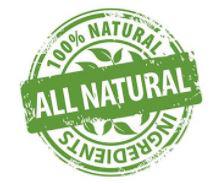Ongoing Legal Battles Over ‘Natural’ Definition
2017-08-30 15:34:50
More than a year after the Food and Drug Administration signaled that it would soon nail down exactly what the word “natural” means, the agency has yet to provide any guidance — and baffled consumers are suing.
They’ve sued Sargento, the dairy giant, because the cows behind its “natural” cheeses are given genetically modified feed.
They’ve sued Walmart over its “all-natural” pita chips, which contain thiamine mononitrate and folic acid — both B vitamins that are made synthetically.
They’ve even sued HINT, which makes “all-natural” fruit-flavored waters, for using a common solvent to boost the drink’s taste.
Since January, court filings show that there’s been an uptick in lawsuits against food companies regarding “all-natural” and “natural” claims — and some lawyers say the FDA’s continued silence is to blame.
Nineteen all-natural class actions have been filed this year, as of July 2017. There were 27 such suits for the entire year of 2016.
The suits were brought by individual consumers, or small groups of consumers, on behalf of everyone who purchased a given product. The lawsuits frequently claim that “natural” labels tricked shoppers into buying a more expensive cheese — or flavored water, or pita chip — by deceiving them about how the product was made. A handful of law firms filed the majority of complaints.
“It’s really striking that we’re seeing this return to the types of claims we were seeing two years ago,” said Charles Sipos, a partner at the law firm Perkins Coie who defends food manufacturers. “Plaintiffs are arguing that the FDA hasn’t acted yet, and that’s tantamount to an admission they’re not going to act.”
Judges, consumer groups and even manufacturers have long called on government to intervene in the fraught debate over what the word “natural” means on a food label — much like the words “wholesome” and “pure,” which have also been the subject of lawsuits.
For manufacturers, such guidance would clarify the rules of the game, helping them avoid future legal action. For consumer groups, the concern is that shoppers don’t understand what they’re buying when they shell out more money for “natural” products.
According to a 2016 survey by Consumer Reports, 73 percent of consumers seek out products with the “natural” label. But many erroneously believe it indicates a food does not contain synthetic, highly processed or genetically modified ingredients, when in fact there are no clear rules for what “natural” is and isn’t.





